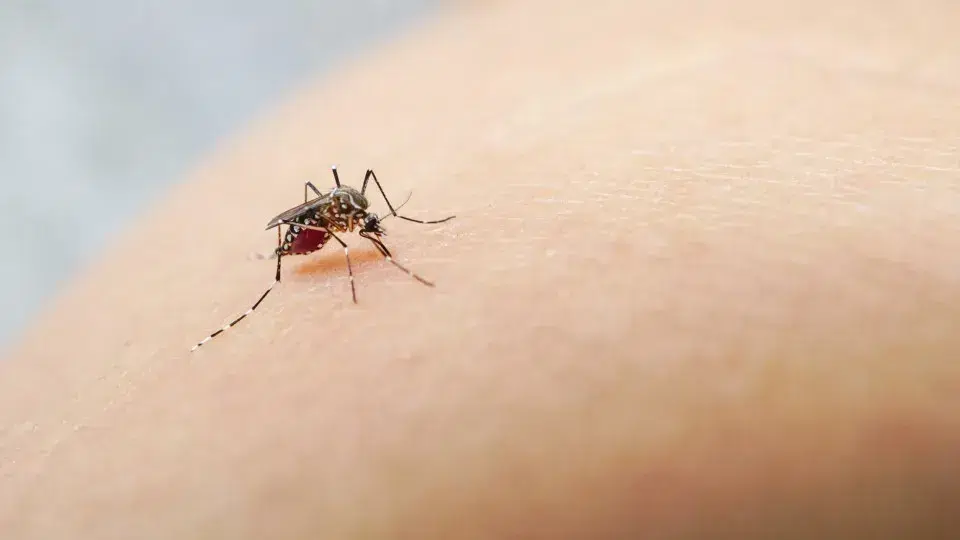
The Local Health Unit (ULS) has identified an increase in the presence of the tiger mosquito (Aedes albopictus) in the municipality of Pombal during regular surveillance activities, as stated in a press release.
“Although there have been no reported cases of diseases associated with this vector in mainland Portugal, it is important to highlight that the tiger mosquito is a potential transmitter of viruses such as dengue, zika, and chikungunya, and can cause painful bites and allergic reactions in sensitive individuals,” warned the ULS.
The ULS called on the public to cooperate with prevention and control measures, which include eliminating stagnant water in plant saucers, tires, bottles, drains, or other containers, regularly cleaning and renewing animal drinking troughs, keeping gutters and drainage systems clear, and storing outdoor containers covered or upside down.
For individual protection, the ULS recommended using insect repellent, wearing loose clothing that covers arms and legs, and installing mosquito nets on windows.
“These actions are essential to prevent the reproduction of this mosquito, whose main control method is the elimination of sites for egg deposition, the small stagnant water sources.”
Rui Passadouro, coordinator of the ULS’s Department of Public Health, stated that the mosquito had been detected previously, albeit infrequently, but “a significantly higher number, along with eggs, has recently been detected in the Pombal region.”
The physician explained that this mosquito “has the capability of being a vector for some diseases, such as zika and dengue, therefore if this vector is present, the possibility of disease transmission is higher,” although he emphasized that there are still no cases of these diseases in mainland Portugal.
According to Rui Passadouro, “from last year to this year, there has been about a tenfold increase in the number of captures” of the mosquito in Pombal.
“This is not a panic alert, but a constructive one, because what we want people to do is to check the places where these mosquitoes lay their eggs and then grow. Therefore, wherever there is stagnant water, this can happen,” he noted.
In July 2024, the Directorate-General for Health (DGS) recommended that municipalities, tourist enterprises, and entities in the agricultural, industrial sectors, among others, adopt prevention and control measures for the mosquito that transmits zika and dengue.
In a guideline published on its website, the DGS emphasized that, given the detection of the invasive species Aedes albopictus in various parishes and municipalities in mainland Portugal, it is important to strengthen prevention and control mechanisms aimed at reducing the abundance or elimination of this mosquito species.
According to the DGS, the most recent detections of the invasive mosquito in Portugal were recorded in the municipalities of Cascais and Pombal, corresponding to risk level 1 (yellow) on a scale from 0 to 3, defined according to different scenarios regarding the presence of Aedes mosquitoes and the detection of disease cases, as outlined in the National Plan for the Prevention and Control of Vector-Borne Diseases.
The presence of invasive Aedes mosquitoes in Portugal began with the detection of Aedes aegypti in Madeira in 2005. The Aedes albopictus species was introduced on the mainland in 2017 in the North (Penafiel), in 2018 in the Algarve (Loulé), and in 2022 in the Alentejo (Mértola).




